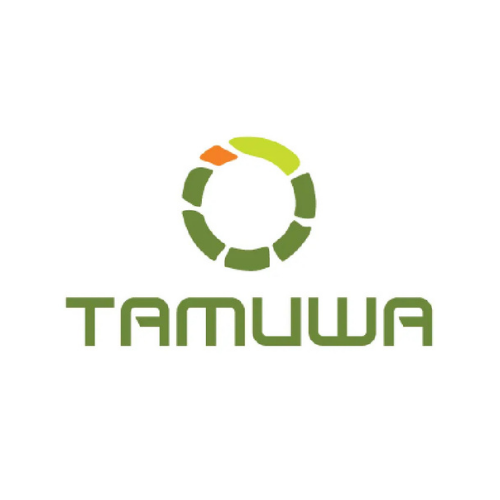
Tamuwa
Tamuwa, founded in 2015, is a Kenyan company at the forefront of the renewable energy sector in Africa. Its primary focus is on converting agricultural waste, specifically sugarcane bagasse, into a sustainable and affordable energy source. By producing high-density briquettes and pellets, Tamuwa provides a clean alternative to traditional fuels like firewood and charcoal, addressing issues of deforestation and promoting a circular economy.
The company's core service is the production and distribution of these biomass briquettes, which have a high calorific value and low moisture content, making them an efficient fuel source for industrial and domestic use. Tamuwa has also developed the CYNK platform, a digital end-to-end solution for the measurement, reporting, verification, and trading of high-quality voluntary emissions reductions (VERs). This platform is designed to bring trust and transparency to the carbon offset market, enabling local communities and projects to gain greater financial benefit from their environmental initiatives.
The CYNK platform is built on the Hedera network, leveraging its high-throughput, low-cost, and energy-efficient distributed ledger technology. This integration allows Tamuwa to digitize and tokenize verified emissions reductions, creating a secure and transparent marketplace for carbon credits.
Project Information
Related Projects

Xeni is a travel technology company that provides a white-label platform for online resellers. Its mission is to simplify the process of buying and selling travel by unifying booking, inventory, payments, and customer management on a single platform. Xeni powers travel platforms for a range of enterprises, including “super apps,” payment gateways, event organizers, travel clubs, host agencies, and travel professionals.
The platform's infrastructure is built on the Hedera blockchain network enabling features including a predictable fee structure, bank-grade security, high throughput, and scalability. Bookings made on the Xeni platform are tracked, stored, and settled on the immutable Hedera ledger. This on-chain recording of financial dealings includes commission payments and related user fees.
Xeni's B2B solution allows subscribers to instantly launch online travel businesses with a booking engine, access to bookable inventory at wholesale rates, custom markup tools, and a built-in CRM system. Travelers using Xeni-powered sites can pay in fiat or cryptocurrency.

Mingo is a digital communication platform built on the Hedera network. It was designed to merge traditional messaging with the power and efficiency of Web3. Its foundational feature is a multi-messaging aggregator that consolidates various chat services into a single, unified inbox. This allows users to manage conversations from different platforms without constantly switching applications.
It features a multi-asset crypto wallet powered by Hedera, enabling users to securely manage HBAR and other Hedera-based tokens adding transaction features to its chat services. By utilizing the Hedera public ledger, Mingo facilitates instant, low-cost crypto transactions directly within a simple chat interface.
In addition to its Hedera-powered wallet and message aggregator, Mingo provides its own secure, end-to-end encrypted Mingo Chat. The platform’s strategic goal is to leverage Hedera’s speed, security, and low fees to bridge the gap between Web2 and Web3. It seeks to demystify cryptocurrency and encourage mainstream adoption by embedding intuitive and powerful decentralized finance functionalities into an essential, everyday communication tool.

AdsDax is a digital advertising platform founded in 2013 that aims to solve endemic problems in the advertising industry, such as fraud and a lack of transparency, by removing intermediaries and fostering direct, value-based connections between brands and consumers.
The core of AdsDax's service is a self-serve advertising platform that allows brands to create, buy, and sell advertising in a transparent environment. A key feature of their model is the use of incentivised experiences, where consumers are rewarded with digital assets for their engagement with advertising content. This approach, which leverages AI for campaign optimization, is designed to move beyond superficial metrics such as "likes" to drive authentic engagement and build brand loyalty. The platform supports a variety of ad formats, including interactive and video ads, and is utilised by major advertising agencies.
AdsDax uses the Hedera Consensus Service to track and verify millions of advertising events such as impressions, clicks, and conversions in real-time. Each event is recorded on the Hedera public ledger, creating an immutable and auditable trail that provides a single source of truth for advertisers and publishers. This allows for the automated and near-instantaneous settlement of payments to publishers and rewards to consumers using cryptocurrencies.

Bitcarbon is a digital asset created by Diamond Standard, founded in 2018. Bitcarbon functions as the governance token for the "Carats" ecosystem, which is a system of commodity tokens backed by physical Diamond Standard Coins and Bars held in secure vaults.
The core product is a fungible and transparent diamond commodity, which is tokenised to create liquidity in the previously illiquid diamond market. Each "Carat" token represents a fractional ownership of a Diamond Standard commodity, providing a trustless store of wealth that can be used for payments. The Bitcarbon token, in turn, governs the Carats smart contract and earns revenue from the transaction and custody fees generated by the Carats ecosystem. This creates a unique digital asset that is intrinsically linked to the value and utility of a physical, real-world asset.
Bitcarbon and the entire Diamond Standard ecosystem are deeply integrated with the Hedera network. The company uses the Hedera Token Service (HTS) to mint and manage its digital assets, including the tokens that represent ownership of the physical diamond commodities.
